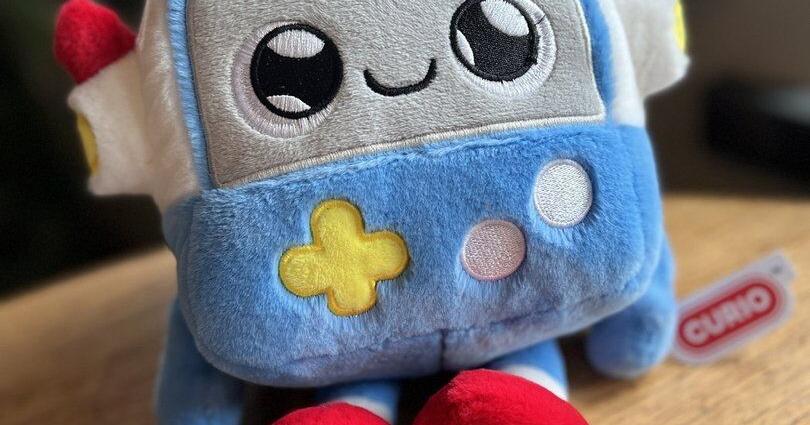One of the core reasons people have cherished “Wicked” for decades is the deeply profound connection between Galinda, the bubbly queen bee who wears more pink than Barbie and Elphaba, the green-skinned outcast who transforms into the Wicked Witch of the West.
As the stage show became a commercial success, it also became a beacon of female friendship — a media rarity in the early aughts — thanks to the performances of Kristin Chenoweth and Idina Menzel, who originated the roles on Broadway in 2003.
The themes of sisterhood course so strongly through the Wickedverse that Ariana Grande and Cynthia Erivo, the stars of last year’s movie adaptation and its sequel “Wicked: For Good” (in theatres now), were pretty much required to form a genuine, deeply felt bond. They did, so much so that Erivo instinctively shielded Grande when a fan lunged at her at a premiere event in Singapore. “I think we found a little piece of ourselves in each other,” Erivo said during an interview on Jake’s Takes last year, a teary-eyed Grande sitting beside her.
Clearly, the goal of these two films, directed by Jon M. Chu, was to put the power of female friendship on full display. But for me, they failed miserably.
Hints of trouble started to sprout in 2024’s “Wicked,” which adapts the musical’s first act and follows the young witches at Shiz University. The pair begin as enemies: Galinda judges Elphaba for her green skin and envies her magical abilities, while Elphaba looks down on the “Popular,” image-obsessed Galinda. It takes nearly half the film for their friendship to emerge: after Galinda cruelly tricks Elphaba at a school event, she publicly dances with her as an apology.
After such a dramatic turning of the tides, you would think the rest of the film would dive deeper into Galinda and Elphaba’s friendship. But the movie doesn’t pause — the final act follows Elphaba to Emerald City, where she discovers she’s been manipulated by the Wizard (Jeff Goldblum) and his accomplice, Madame Morrible (Michelle Yeoh). Galinda sides with these two powerful gaslighters over her supposed friend. That isn’t what sisterhood looks like.
By the time “Wicked: For Good” picks up, the renamed Glinda the Good is essentially functioning as a propaganda machine. The Wizard and Madame Morrible have branded her as a symbol of goodness and hope, while spreading so much misinformation about Elphaba that Ozians see her as a Voldemort-like figure.
Galinda does nothing to try to quell the public sentiment, hiding behind her layers of pink, singsongy voice and swoony romance with Fiyero (Jonathan Bailey). She only comes to Elphaba’s defence in private, where it is safe and easy to do so.
Surprisingly, Elphaba doesn’t seem all that bothered by it; she even briefly considers Glinda’s proposal to make peace with the Wizard and help him rule Oz. This lack of reaction to Glinda’s continued betrayal feels disorienting and hollow, but the chemistry between Grande and Erivo is so good, you can almost believe their connection transcends the situation. But then they have a real falling out. Over a guy.
That’s right — our love-conquers-all best friends fall into disrepair because of Fiyero. Elphaba has been hiding her flirtation with Glinda’s betrothed from the moment they met. When Fiyero decides to break off his engagement and run away with Elphaba, Glinda is naturally devastated. Getting jilted is a legitimate betrayal, but what’s truly disappointing is that after these women have survived years of propaganda and threats, the biggest obstacle to their friendship is a rather dull man.
“Wicked,” in all its forms, is supposed to centre complex female characters. But “Wicked: For Good” spends far too much time centring a flimsy male character and reverts to a tired plot device that cheapens Elphaba and Glinda’s relationship. In a scene that could be ripped from the worst kind of early-2000s comedy, the women launch into a cat fight over said man that’s played for comedic effect. The story is no longer their friendship, but this half-hearted love triangle that, frankly, isn’t very compelling.
Of course, Glinda and Elphaba do have a rushed reconciliation, leading up to “For Good,” the climactic musical number. The song is meant to reaffirm their friendship before they share a final goodbye; they tell each other, “because I knew you, I have been changed for good.” It’s a powerfully acted scene, but after everything that has unfolded, it rings empty.
It’s hard to believe that either character has grown much as a result of the friendship. Elphaba may now know what it’s like to be loved, but she is still a stubborn iconoclast; Glinda may promise to do better, but what will she do with more power when she was content to squander the power she already had for the sake of convenience? The memory of their friendship can’t be trusted to improve them when the reality of it didn’t.
Ultimately, the problem is that we are constantly being told Elphaba and Glinda love each other — through both dialogue and song — but we never really see it. Their connection is formed and explored in such a compressed amount of screen time, and their behaviour is not indicative of their professed profound feelings. On Grande and Erivo’s often maudlin press tour, their friendship did seem sincere. Glinda and Elphaba’s should too.



